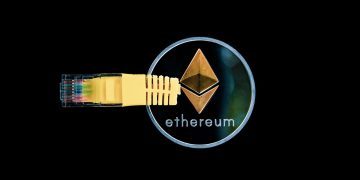Blockchain technology, often associated with cryptocurrencies like Bitcoin, has evolved beyond digital currency to offer new opportunities across various industries. It holds tremendous potential, not only for large corporations but also for small businesses, allowing them to streamline operations, improve transparency, and enhance security.
In this article, we will explore how small businesses can effectively leverage blockchain technology. We’ll break down the concept of blockchain, discuss its advantages, and provide real-world examples to help small business owners understand how they can implement this transformative technology.
Table of Contents
- What Is Blockchain Technology?
- Benefits of Blockchain Technology for Small Businesses
- Enhanced Security
- Improved Transparency
- Cost Savings
- How Blockchain Differs from Traditional Databases
- Use Cases of Blockchain in Small Businesses
- Smart Contracts
- Supply Chain Management
- Decentralized Finance (DeFi)
- Digital Identity Verification
- Industries Where Small Businesses Can Utilize Blockchain
- Retail
- Healthcare
- Real Estate
- Step-by-Step Guide to Implement Blockchain in a Small Business
- Challenges Small Businesses May Face When Adopting Blockchain
- How to Overcome the Challenges
- Blockchain Platforms for Small Businesses
- Ethereum
- Hyperledger Fabric
- Stellar
- Corda
- Examples of Small Businesses Successfully Using Blockchain
- Blockchain Regulations and Compliance for Small Businesses
- The Future of Blockchain in Small Business
- FAQs on Blockchain for Small Businesses
- Conclusion
1. What Is Blockchain Technology?
Blockchain is a decentralized digital ledger that records transactions across multiple computers in such a way that the entries cannot be altered retroactively. Each block of data is linked to the one before it, creating a chain of information. The technology was initially created to support Bitcoin but has expanded far beyond cryptocurrency.
In essence, blockchain enables secure and transparent data management without requiring a centralized authority. Its decentralized nature eliminates the need for intermediaries, reducing costs and increasing efficiency.
For small businesses, blockchain offers a way to improve data security, ensure transparency, and reduce costs, all of which are critical in the modern business landscape.
2. Benefits of Blockchain Technology for Small Businesses
Enhanced Security
Blockchain uses cryptographic techniques to secure data. Each transaction is recorded on multiple computers (nodes) within the blockchain network, making it nearly impossible to hack or tamper with. This enhanced level of security ensures that sensitive business data, financial information, and customer records remain safe.
For small businesses, this level of security can safeguard against data breaches, fraud, and identity theft, all of which can be costly and damaging to a company’s reputation.
Improved Transparency
Blockchain allows for transparent record-keeping, as all participants in the network have access to the same data. Transactions are visible to all parties involved and are time-stamped, providing an accurate and tamper-proof history of events.
This transparency is particularly valuable for small businesses working with suppliers, customers, or partners, as it fosters trust and ensures accountability throughout the supply chain.
Cost Savings
Blockchain technology can help small businesses save on costs by eliminating the need for intermediaries. Whether it’s reducing bank fees, cutting down on transaction times, or automating contracts through smart contracts, blockchain has the potential to lower operational costs.
Additionally, blockchain can improve efficiency, reducing the need for manual reconciliation of records or third-party verification processes.
3. How Blockchain Differs from Traditional Databases
Traditional databases are centralized systems where a single entity has control over the data. In contrast, blockchain is decentralized, meaning no single organization or individual controls the data stored on it.
Another key difference is immutability. Once data is added to a blockchain, it cannot be altered or deleted. In traditional databases, administrators can modify or delete data, which introduces the risk of fraud or error.
Finally, blockchain transactions are time-stamped and verified by multiple nodes in the network, providing a higher level of trust and accuracy compared to traditional databases, where data validation may rely on one party.
4. Use Cases of Blockchain in Small Businesses
Smart Contracts
Smart contracts are self-executing contracts where the terms are directly written into lines of code. These contracts automatically execute when certain conditions are met, reducing the need for intermediaries like lawyers or banks.
Small businesses can use smart contracts to automate various aspects of their operations, such as payments, service agreements, or supplier contracts, reducing the need for manual intervention and lowering costs.
Supply Chain Management
For businesses that rely on a supply chain, blockchain can provide transparency and traceability. With blockchain, small businesses can track the movement of goods from production to delivery, ensuring authenticity and preventing fraud.
By using blockchain for supply chain management, small businesses can improve efficiency, reduce delays, and offer customers greater transparency about the origins of their products.
Decentralized Finance (DeFi)
Blockchain enables decentralized finance (DeFi), a system where financial products are available on a public decentralized blockchain network. DeFi allows small businesses to access financial services without relying on traditional banks.
Through DeFi, small businesses can secure loans, engage in peer-to-peer lending, or use blockchain-based insurance products, all of which can provide access to capital and financial tools that may not be available through traditional banking.
Digital Identity Verification
Blockchain can provide a secure and decentralized method for verifying identities. Small businesses that need to verify customer or employee identities, such as those in the financial, healthcare, or retail sectors, can use blockchain to ensure secure and tamper-proof identity verification.
5. Industries Where Small Businesses Can Utilize Blockchain
Retail
Retail businesses can use blockchain to improve supply chain transparency, ensure the authenticity of goods, and streamline payments. Additionally, blockchain can help manage customer loyalty programs, providing a secure and transparent method for tracking points and rewards.
Healthcare
Small healthcare businesses can benefit from blockchain by improving patient data security, ensuring compliance with regulations like HIPAA, and streamlining medical billing processes. Blockchain can also facilitate better coordination between different healthcare providers by providing a single, immutable record of patient data.
Real Estate
In real estate, blockchain can streamline property transactions by reducing the need for intermediaries and speeding up the verification process. Small real estate firms can use blockchain to manage property listings, execute smart contracts for sales and leases, and verify the ownership of properties.
6. Step-by-Step Guide to Implement Blockchain in a Small Business
- Identify Business Needs
Determine what areas of your business can benefit from blockchain technology, such as supply chain management, payment systems, or contract automation. - Research Blockchain Solutions
Explore different blockchain platforms (like Ethereum, Hyperledger Fabric, or Stellar) and find one that aligns with your business goals and technical requirements. - Develop a Blockchain Strategy
Create a roadmap for how you will implement blockchain, including the specific use cases, resources needed, and expected outcomes. - Hire Blockchain Experts
If your business lacks the technical expertise, consider hiring blockchain developers or consultants who can help you design and implement the solution. - Test the System
Before rolling out blockchain across your entire business, test it in a controlled environment to ensure it meets your needs and performs as expected. - Deploy and Monitor
Once the system has been thoroughly tested, deploy it and monitor performance. Make adjustments as necessary to ensure smooth operation.
7. Challenges Small Businesses May Face When Adopting Blockchain
Adopting blockchain technology is not without its challenges. For small businesses, some of the main obstacles include:
- Technical Complexity: Blockchain requires a certain level of technical knowledge that many small businesses may not possess.
- Initial Costs: While blockchain can reduce costs in the long run, the initial setup can be expensive, especially if you need to hire blockchain developers.
- Regulatory Uncertainty: Blockchain is still relatively new, and regulations around its use are still evolving, which can create uncertainty for businesses looking to adopt the technology.
8. How to Overcome the Challenges
Partner with Experts
To address the technical complexity, small businesses can partner with blockchain experts or consultants who can guide them through the process of implementation. This reduces the learning curve and ensures that the technology is applied correctly.
Start Small
Instead of overhauling your entire business with blockchain, start by applying it to a small, manageable part of your operations. This will allow you to test the technology without making a large financial commitment.
Stay Informed on Regulations
Since blockchain regulations are constantly changing, small businesses should stay informed about the legal landscape. Working with legal professionals who specialize in blockchain can help ensure compliance and reduce the risk of regulatory issues.
9. Blockchain Platforms for Small Businesses
Ethereum
Ethereum is one of the most popular blockchain platforms for smart contracts and decentralized applications (DApps). Small businesses can leverage Ethereum for supply chain management, automated contracts, and secure payments.
Hyperledger Fabric
Hyperledger Fabric is an open-source blockchain platform designed for enterprise use. It is ideal for businesses that need a high level of privacy and control over their blockchain networks.
Stellar
Stellar is a blockchain platform focused on facilitating fast, low-cost cross-border payments. Small businesses can use Stellar to streamline international payments and reduce transaction fees.
Corda
Corda is a blockchain platform designed for businesses in highly regulated industries like finance and healthcare. It provides strong privacy features and is well-suited for small businesses dealing with sensitive data.
10. Examples of Small Businesses Successfully Using Blockchain
- Provenance: This UK-based startup uses blockchain to provide transparency in the supply chain, helping small businesses authenticate the origins of their products.
- PopCom: An automated retail technology company, PopCom uses blockchain for secure transactions and data management, particularly for vending machines and kiosks.
- Loyyal: A blockchain-based loyalty and rewards platform that allows small businesses to create, track, and redeem customer rewards in a decentralized manner.
11. Blockchain Regulations and Compliance for Small Businesses
Blockchain regulations vary by country and industry, so it’s important for small businesses to stay up to date with the laws in their region. In the U.S., for example, businesses may need to comply with regulations from the Securities and Exchange Commission (SEC) or the Commodity Futures Trading Commission (CFTC) if they are dealing with cryptocurrency.
Additionally, privacy laws like the General Data Protection Regulation (GDPR) in the European Union can impact how businesses use blockchain for data management, especially if they are dealing with personal information.
12. The Future of Blockchain in Small Business
The future of blockchain in small business looks promising. As technology becomes more accessible and regulations become clearer, more small businesses will likely adopt blockchain for a variety of use cases. From supply chain management to secure payments, blockchain offers significant advantages that can help small businesses stay competitive in an increasingly digital world.
13. FAQs on Blockchain for Small Businesses
1. What is blockchain?
Blockchain is a decentralized digital ledger that securely records transactions across a network of computers, ensuring data integrity and transparency.
2. Can small businesses afford blockchain technology?
Yes, while there may be initial costs, blockchain can provide long-term savings through reduced transaction fees, automated processes, and improved security.
3. What industries can benefit from blockchain?
Retail, healthcare, real estate, and finance are just a few industries where small businesses can leverage blockchain technology.
4. What is a smart contract?
A smart contract is a self-executing contract where the terms are written into code. It automatically executes when predefined conditions are met, reducing the need for intermediaries.
5. Do I need technical expertise to use blockchain?
While some technical knowledge is required, small businesses can partner with blockchain experts or use blockchain platforms that simplify the implementation process.
6. Is blockchain secure for small businesses?
Yes, blockchain is highly secure due to its decentralized and cryptographic nature, making it an excellent solution for protecting sensitive data.
14. Conclusion
Blockchain technology offers small businesses an opportunity to enhance security, streamline operations, and reduce costs. Whether it’s through smart contracts, supply chain transparency, or decentralized finance, blockchain can provide a competitive advantage in today’s digital economy. By understanding the benefits and overcoming the challenges, small businesses can successfully leverage blockchain to drive growth and innovation.












































